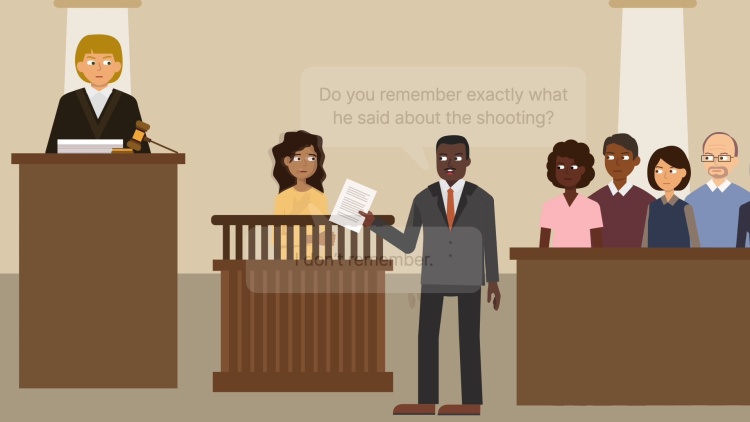Ohio v. Scott
Ohio Supreme Court
285 N.E.2d 344 (1972)

- Written by Christine Raino, JD
Facts
At the trial of Randy Scott (defendant) for shooting with intent to kill and for shooting at police officers, Scott’s girlfriend, Carol Tackett, took the stand and testified about a conversation she had with Scott the day he was arrested. Tackett testified that Scott showed up while she watching a show, about five to ten minutes before it ended, and she spoke with him “about somebody being shot at that time.” She further testified that she left the show right after the conversation with Scott but she did not remember what words Scott had used regarding somebody being shot. The state (plaintiff) asked Tackett to look at a signed, written statement she had given police the day after Scott’s arrest. This document contained Tackett’s statement that “About 5 min. before the show was over Randy came in. . . . He had told me he wrecked a car and he shot a guy.” After the state confirmed that the document was written and signed by Tackett, that it was accurate, and that her memory was better at the time she made the written statement than when she was testifying on the stand, the court admitted Tackett’s written statement over Scott’s objection. Scott was convicted and appealed his conviction to the Court of Appeals. The Court of Appeals affirmed and Scott appealed to the Ohio Supreme Court.
Rule of Law
Issue
Holding and Reasoning (Leach, J.)
Dissent (Corrigan, J.)
What to do next…
Here's why 907,000 law students have relied on our case briefs:
- Written by law professors and practitioners, not other law students. 47,100 briefs, keyed to 996 casebooks. Top-notch customer support.
- The right amount of information, includes the facts, issues, rule of law, holding and reasoning, and any concurrences and dissents.
- Access in your classes, works on your mobile and tablet. Massive library of related video lessons and high quality multiple-choice questions.
- Easy to use, uniform format for every case brief. Written in plain English, not in legalese. Our briefs summarize and simplify; they don’t just repeat the court’s language.





